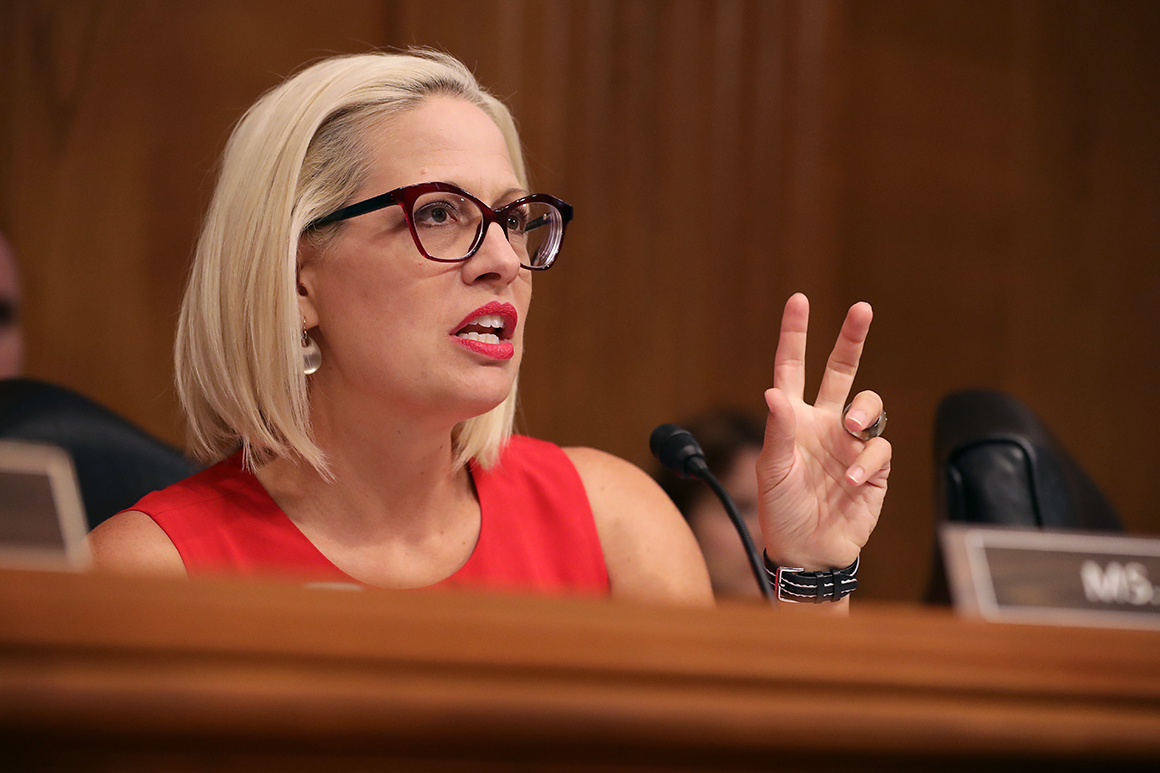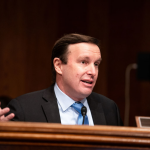The Senate on Friday is set to squash a bid to tack a $15 minimum wage to President Joe Biden’s $1.9 trillion coronavirus aid bill, with eight Democratic caucus members joining all 50 Republicans in rejecting the change.
The Senate parliamentarian had ruled that the wage increase could not be added to the bill and approved by a simple majority of senators despite House passage of the provision last week. After Senate Democrats stripped it from the Covid package, a group of progressive senators led by Bernie Sanders (I-Vt.) forced a vote on the policy change anyway.
That vote remained held open Friday afternoon at a tally of 42-58 while senators negotiated on other issues. But it already showed that even though the Democratic caucus overwhelmingly supports the effort of gradually raising the wage floor to $15, raising the wage faces significant hurdles within the party.
Even if the legislative filibuster were eliminated — as progressives are calling for to help raise the wage with a simple Senate majority — Democrats are leagues away from having the votes to get the nation to a $15 hourly rate.
Democratic Sens. Joe Manchin of West Virginia, Jon Tester of Montana, Jeanne Shaheen of New Hampshire, Kyrsten Sinema of Arizona and Maggie Hassan of New Hampshire voted against proceeding, though the tally remains open. So did two close Biden allies, Chris Coons and Tom Carper of Delaware. Sen. Angus King (I-Maine), who caucuses with the Senate Democrats, also opposed it.
Sinema indicated that she supports raising the wage, which last increased in 2009, because she understands “what it is like to face tough choices while working to meet your family’s most basic needs.” But she said a standalone debate on the issue made more sense than putting it in a coronavirus relief package.
“Senators in both parties have shown support for raising the federal minimum wage and the Senate should hold an open debate and amendment process on raising the minimum wage, separate from the Covid-focused reconciliation bill,” she said.
Progressives were not pleased by the defeat on the Senate floor. Sanders vowed to keep pressing the matter.
"If any senator believes this is the last time they will cast a vote on whether or not to give a raise to 32 million Americans, they are sorely mistaken," said the Vermonter, who chairs the Budget Committee. "We’re going to keep bringing it up, and we’re going to get it done because it is what the American people demand and need.”
Pennsylvania Lt. Gov. John Fetterman, who is running for the Senate in 2022, said that “every single senator who voted against a $15 minimum wage today should be forced to live on $7.25 an hour so that they can demonstrate to all of us how it’s possible.”
The vote was not an exact extrapolation of where senators stand on raising the wage. Rather than a straight up-or-down vote on the issue, Sanders’ amendment sought to override the parliamentarian’s ruling that the wage increase couldn’t be included in the Covid aid package, which requires only 50 votes and a tiebreaker from Vice President Kamala Harris to succeed thanks to the protections of a process known as budget reconciliation.
So Sanders needed to win 60 votes on Friday to get around that procedural hurdle — which was never going to happen given unanimous GOP opposition to doubling the current $7.25 minimum wage.
Still, the vote on Friday revealed that Senate Democrats are nowhere near having the support they need to raise the wage to $15. The disappointing roll call for progressives suggested that bipartisan negotiations with Republicans are the only way forward in the near-term on the wage, and the White House is entertaining that approach. Several Republicans, including Minority Leader Mitch McConnell, have expressed openness to a wage increase.




















